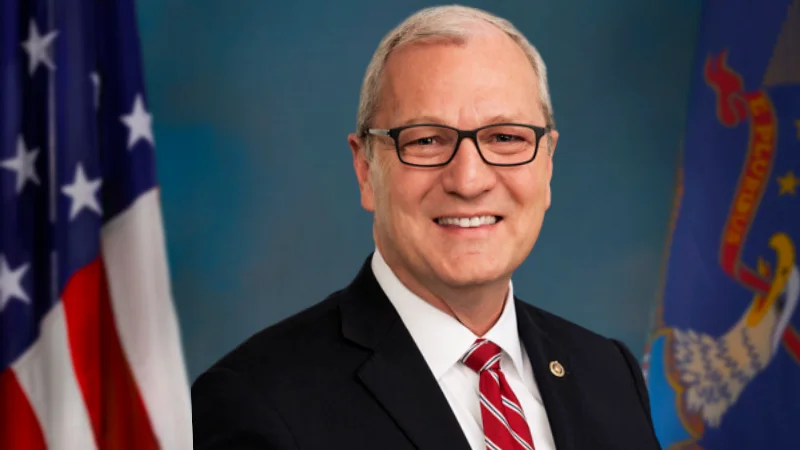Senator Kevin Cramer, US Senator for North Dakota | Senator Kevin Cramer Official website
Senator Kevin Cramer, US Senator for North Dakota | Senator Kevin Cramer Official website
The Senate Armed Services Committee held a hearing to consider the nomination of General Ken Wilsbach as the next U.S. Air Force Chief of Staff. If confirmed, General Wilsbach will oversee the organization, training, and equipping of 689,000 active-duty, Guard, Reserve, and civilian personnel in the United States and abroad.
During the hearing, Senator Kevin Cramer (R-ND), chair of the SASC Airland Subcommittee and co-chair of the Senate Defense Modernization Caucus, expressed his support for General Wilsbach’s nomination. “I have to say, I can’t imagine a person better prepared and equipped than you are for this job,” said Cramer. “I’m really grateful you said yes, and I’m really grateful you got the call.”
Senator Cramer highlighted the importance of modernizing the nuclear triad through programs like Sentinel. The Sentinel program aims to replace aging Minuteman III intercontinental ballistic missiles with LGM-35A Sentinel ICBMs. Minot Air Force Base in North Dakota is unique as it houses both B-52 bombers and Minuteman III ICBMs.
“Thank you for your commitment to the Sentinel program,” Cramer stated. “It’s really important to us in Minot, having two of the three legs [of the nuclear triad], to know that we’re going to see it all the way through. We’re not going to stop two-thirds of the way. In fact, I maintain that if you’re going to stop anywhere along the way of developing Sentinel and putting those new missiles in the ground, you shouldn’t start. […] I really appreciate your commitment to Sentinel.”
Cramer also questioned General Wilsbach about plans for maintaining or acquiring airborne Intelligence, Surveillance, and Reconnaissance (ISR) capabilities as space-based ISR systems develop further. For two years, Cramer has sent bipartisan letters to defense secretaries under both recent administrations expressing concern over retiring airborne ISR platforms too quickly and noting that combatant commanders believe space-based ISR alone is insufficient.
General Wilsbach responded: “You’re exactly right,” he said regarding airborne ISR needs. “The RQ-4, the MQ-9, both are really important to us, especially prior to the conflict. Admittedly, if they go into a high threat environment, they could be shot down. But if it’s not a high threat environment, we can get great value out of those platforms to do missions that if we didn't have them, and you didn’t have that capability on space, you would have to go without. So as we go forward into the future, we need to balance that. And frankly, it’s a simple math problem, right? You take the entirety of the collection that you wish to have, and you determine what you’re actually collecting. And if you have a big gap then you can easily make decisions resource decisions on what you want to keep and what you can afford to get rid of because you have...that capability to collect elsewhere.”
General Wilsbach has previously joined Senator Cramer on visits to Grand Forks Air Force Base—which operates RQ-4 Global Hawk unmanned aerial vehicles—and with North Dakota Air National Guard units in Fargo operating MQ-9 Reaper drones for reconnaissance and strike operations.





 Alerts Sign-up
Alerts Sign-up